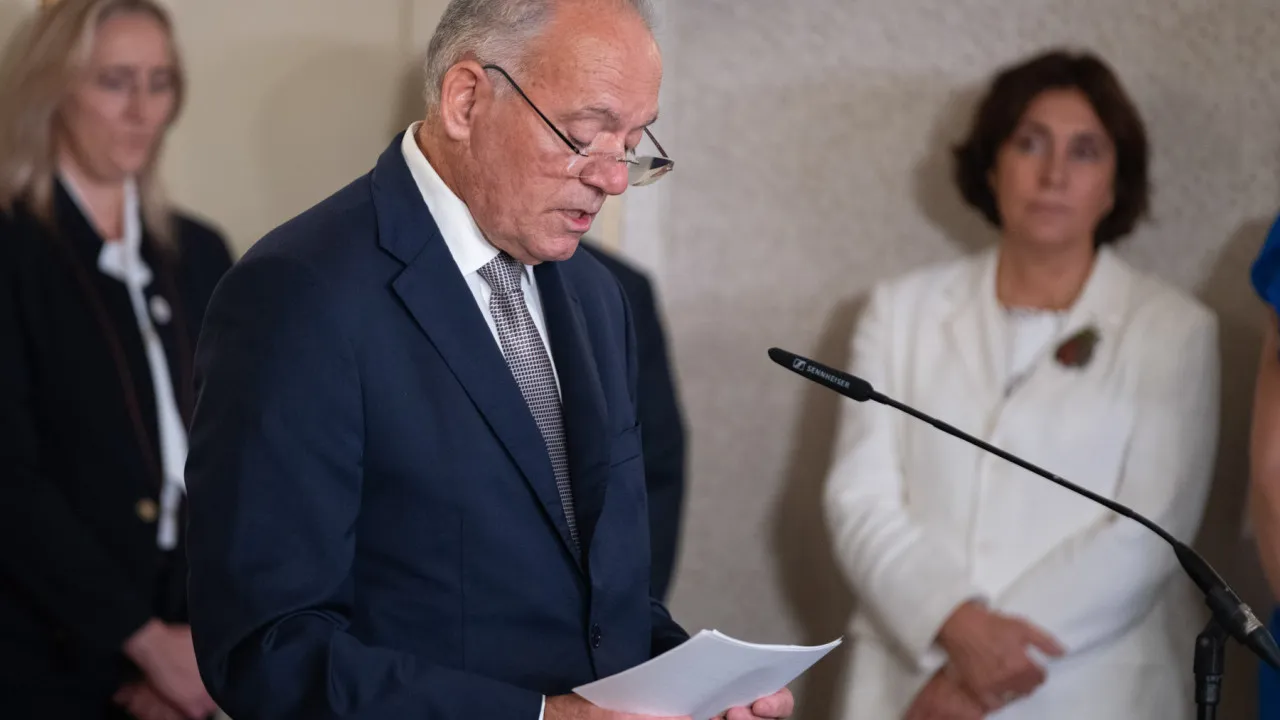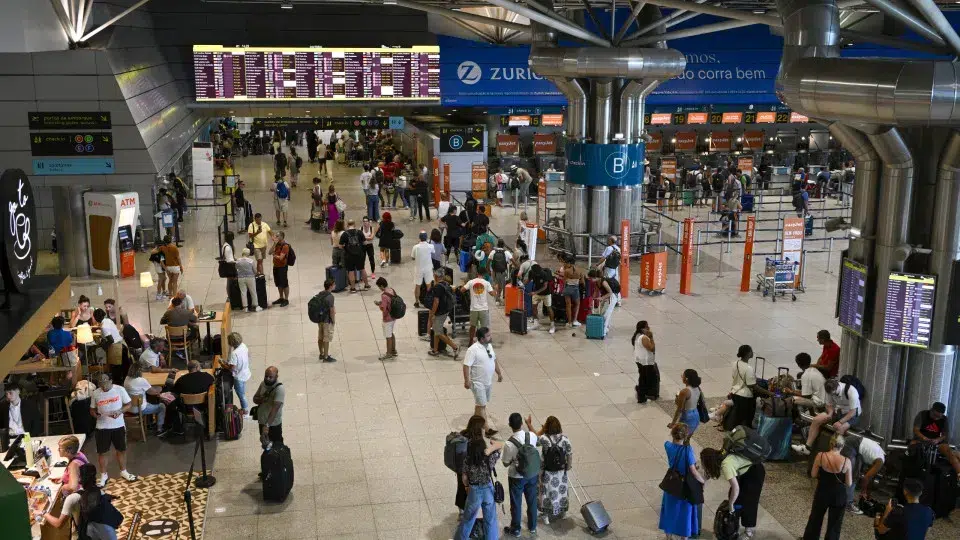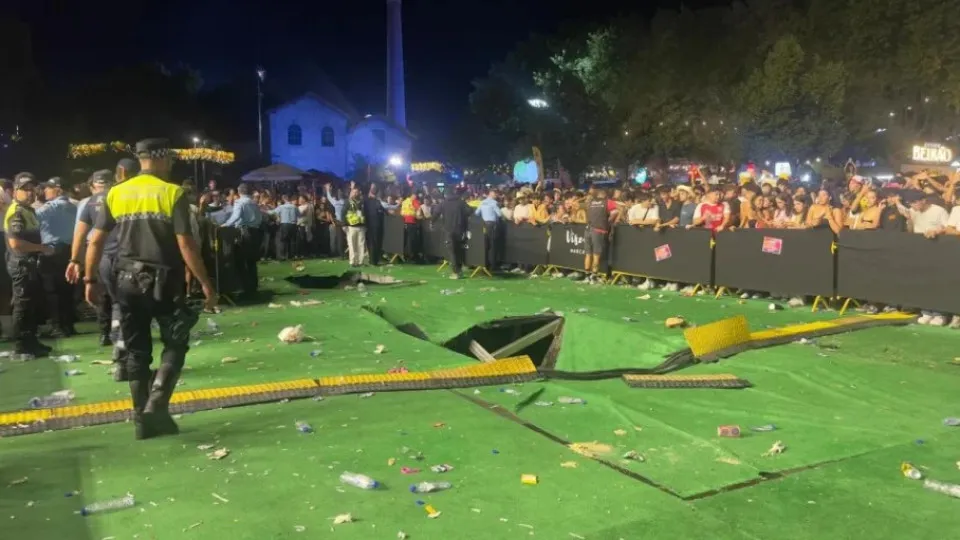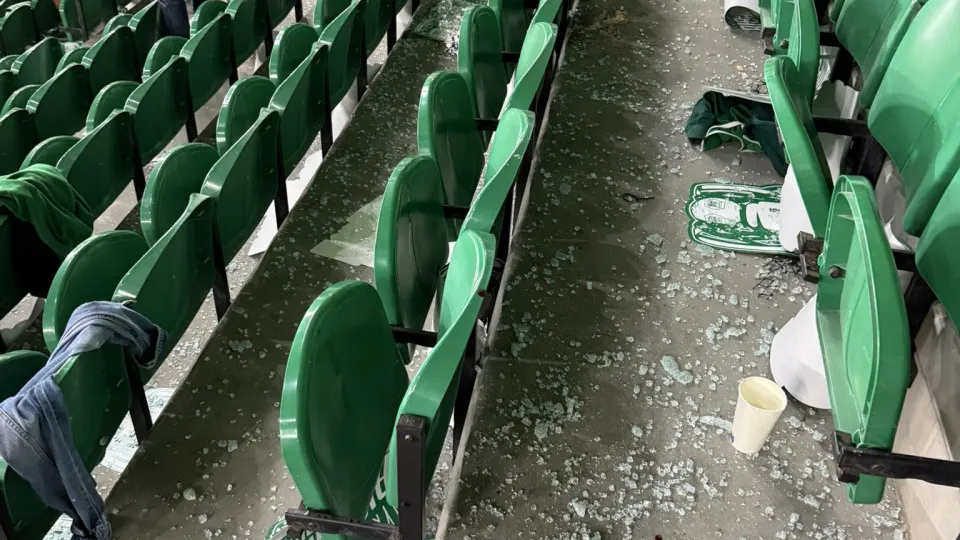
Amadeu Guerra spoke today during and after a visit to the Tribunal Judicial of Almada, in the Setúbal district.
During the meeting with magistrates and other judicial officials present, the Attorney General of the Republic mentioned the significant issue of a shortage of Public Prosecutor’s Office (MP) magistrates that must be resolved strategically, as 50 magistrates are expected to retire this year and 70 in 2026.
“I have made efforts to avoid the Public Prosecutor’s strike in a meeting with the Minister. We are both committed to doing what is possible, but the lack of MP magistrates is a chronic problem that must be addressed strategically,” he said.
Amadeu Guerra stated that it is necessary to realistically assess how many magistrates will retire over the next four to five years and plan accordingly.
Speaking to journalists on the strike issue, the PGR agreed with the Union of Public Prosecutors that there is a shortage of magistrates.
“They understand this, and so do I, therefore, we are possibly on the same side,” he said.
The Union of Public Prosecutors (SMMP) announced a national strike for July 9 and 10, and regional strikes for July 11, 14, and 15, to contest the magistrates’ movement.
The union accuses the Superior Council of the Public Prosecutor’s Office (CSMP) of creating a “multitask and generalist magistrature, driving the final nail into the long-desired and proclaimed specialization,” with aggregations like execution and civil in different municipalities, or family and minors, civil and crime in a single place.
The union also admits resorting to other forms of struggle starting September 1, when the annual magistrates’ movement takes effect.
Asked about the issue of the annual magistrates’ movement, Amadeu Guerra expressed his support for specialization, which was introduced by him along with former Attorney General Joana Marques Vidal, during their time at the Central Department of Investigation and Criminal Action.
“Under my tenure, no specialization will be ended whatsoever. Rest assured about that. We will also not stop paying the accumulations, let that be clear,” Amadeu Guerra emphasized to journalists.
In the Extraordinary General Assembly that decided on the strike, it was also recommended to the board “to initiate a judicial challenge against the movement’s decision as well as the corresponding precautionary measure.”
The warning for the upcoming move of Public Prosecutor’s magistrates, effective from September, was contested by the SMMP.
At issue is the notice published on June 4 in the Official Journal, which includes positions to be filled by prosecutors from September in various departments and courts simultaneously.
Following a meeting with the SMMP, which contested the decree, Amadeu Guerra committed to bringing the issue to the CSMP, which he chairs, and said it was at his proposal that the Council decided to maintain the movement but introduced some changes to prevent arbitrariness and overload in service distribution to prosecutors.
According to the approved changes, any additional functions assigned to prosecutors decided by a district coordinator must go through an approval hierarchy before ratification, and should be communicated by the district to the respective regional attorney general and from there to the CSMP, being one of the requests the union made that Amadeu Guerra noted was deemed relevant by the CSMP.
In response, the SMMP, which demanded the annulment of this year’s magistrates’ movement and its underlying rules, “deeply regretted” the decision to maintain it, declaring itself “forced to resort to forms of struggle” to counter this decision.




